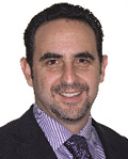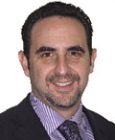Neuroscience
Rethinking Organizations with the Brain in Mind: The Big Pic
Big ideas from day 1 of the NeuroLeadership Summit
Posted November 10, 2011

Chris Williams and Dan Siegel
There's an emerging field of research tackling a big question: how can we develop better leaders, and create more successful organizations. Called NeuroLeadership, the field each year gathers for an annual summit to explore the big questions and share new research.
The 6th NeuroLeadership Summit began in San Francisco this week. Scheduled for three days, day one was all about big picture issues, including "Creating adaptive organizations", "The beliefs that organizations should hold", "The neuroscience of global talent management", "Brain fitness" & "Neuropolitics" amongst others.
Bringing the pieces together.
First up Dan Siegel (UCLA) and Christine Williams of NASA put forward the idea of integration being crucial to the success of not only an organization but also of an individual. Diverse intelligence and organizational divisions can come together with flexible and open thinking. Rigidity and chaos are two extremes that need to be avoided.
Janet Van Huysse and Carol Dweck

Janet Van Huysse and Carol Dweck
A number of seemingly innocent organizational practices, like praising people for success, is likely to not only reduce performance and increase cheating but also make people less adaptive in the work environment.
A study by Carol Dweck, Professor of Psychology at Stanford discovered that individuals praised for intelligence were found to be three times more likely to lie than those praised for effort.
Values for success.
Janet Van Huysse, Vice President of HR at Twitter shared three of their ten core values she believes underlie its success: Seek diverse perspectives; recognize that passion and personality matter; and innovate through experimentation.
Crabb, Rose, Tavis, Wittenberg and Rock

Crabb, Rose, Tavis, Wittenberg and Rock
Most performance management problems are a result of hiring decisions. A panel of HR experts with Stuart Crabb (Facebook), George Rose (Sony Pictures), Anna Tavis (Brown Brothers Harriman) and Evan Wittenberg (HP) discussed how neuroscience can help with talent challenges.
Psychological tests alone aren't reliable in determining how adaptive a candidate is, as those tests tend to favor people who are good at discerning patterns. A more effective method is to create an environment that demands adaptability.
Bob Johansen How to imagine the future and why it is so hard to do.

Bob Johansen
How to imagine the future and why it is so hard to do.
Clarity, not certainty, is key to seeing into the future. In the final group session of day one, two experts, Robert Burton and Bob Johansen took us inside ‘knowing' and what it means for our ability to think ahead with any hope of accuracy.
Trends are patterns of change from which we can extrapolate future events with consistency, according to Bob Johansen, and a 10 year forecast is a story from the future that provokes insight in the present, he added.
"Some of the best are those that annoy us, because they make us really think about the present," he said. An effective forecast is one that takes us from foresight to insight to action.
A key characteristic that will help leaders view the future more effectively is an ‘opposable mind,' which Bob described as the ability to hold opposites in mind and still function-for instance, seeing the future through a threat lens of Volatility, Uncertainty, Complexity and Ambiguity (VUCA) while being able to focus on Vision, Understanding, Clarity and Agility.
In a VUCA world it is important to have an integrated mind and a growth mindset.
Begin with the end.
We wrapped up the day with a Gala dinner including a session with Kenny Moore, a former catholic monk and co-author of best seller The CEO and the Monk: One Company's Journey to Profit and Purpose.
Kenny shared his views on encouraging employees to embrace change by allowing them to mourn the loss of the company they know, and are losing through change, by holding a corporate ‘funeral'.
The 2013 NeuroLeadership Summit is going local with three days of events in three different locations. Click here for more information.


